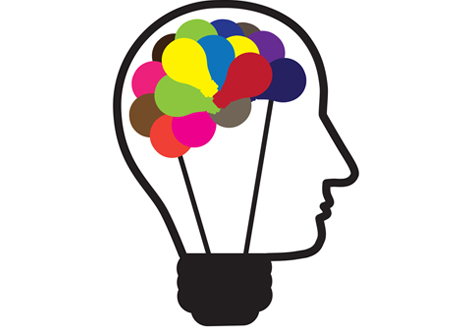By: Gijs van Wulfen
Looking for new solutions, we brainstorm a lot. Getting together to generate new ideas for urgent challenges. And when it’s done professionally we even get a lot of ideas. But are they our best ones? That’s the question. Brainstorming is under a lot of criticism these days. Is this tool giving us the best ideas possible? Do we do it the right way?
Let’s take a step back. And take a look at our personal life. You remember for sure some AHA moments; those moments when a great idea pops up in your head. Everybody has them. Interesting is when does this happen?
I asked this question on LinkedIn and 211 managers and professionals from all over the world described their eureka or AHA-moments. Some typical quotes from this indicative research:
“In my dreams, either sleeping or day dreaming, while walking in the woods or outdoors in nature, but rarely when I am in the office.”
“Lying in my bed just before sleeping; I often get up then to write down the idea in order not to forget it; when showering; when doing a walk in nature.”
“I get mine whilst driving, many a time have I had to call my own phone leaving a voice mail with the idea before I forget it!”
“Walking the dog, I almost see things more clearly than sat at a desk. Quieting the conscious mind giving the unconscious mind room to breath.”
“Most of the time it’s late at night about 10 min after I go to bed. When my brain has slowed down and I am free to think whatever I want”.
Analyzing all the 348 moments creates this top 10 Eureka moments, which accounts for two third of all ‘the moments of great ideas’.
- Showering 11.2%;
- Sleeping 9.2% (dreaming);
- Driving 8.6% (my car, motorbike);
- Walking 8.0% (in nature or walking the dogs);
- Working out & running 7.2% (jogging);
- Before sleeping 6.6%;
- Waking up 6.6%;
- Talking to others 3.7%;
- Alone 3.2%;
- Always 3.2%.
What strikes me most is that only 0.6% of the eureka-moments happens “in a brainstorm” or “at work”. This indicative research on seems to confirm that that if we STOP thinking, our best ideas pop into our minds. In my profession this is called incubation. It is defined as “a process of unconscious recombination of thought elements that were stimulated through conscious work at one point in time, resulting in novel ideas at some later point in time”.
If it takes time to get our best ideas you should plan an incubation period between defining your challenge and sharing ideas on this with others who are involved. I have developed a structured method to start innovation in which incubation has an explicit role.In the FORTH innovation methodology there’s a step of ‘Observe and Learn’ between the kick-off in step one and the ideation workshop in step three. In the 6-week-‘Observe and Learn’-phase you get new insights and ideas at those ‘not-thinking’ moments. During this period you have an ‘Observe & Learn’ booklet at hand to write down everything which comes to your mind: in the shower, while sleeping and driving home. And this pays off. In the ‘Raise Ideas’ phase everybody enters the room with booklets full of great ideas :-).
So if you really need a great idea: take a shower, go to sleep or go for a drive and stop thinking.
About the author
 Gijs van Wulfen (1960; Dutch) is a keynote speaker, author and trainer on innovation and design thinking. He is the founder of the FORTH innovation method and LinkedIn Influencer. In his books, posts and speeches Gijs likes to make a complex theme like innovation simple. Check out gijsvanwulfen.com.
Gijs van Wulfen (1960; Dutch) is a keynote speaker, author and trainer on innovation and design thinking. He is the founder of the FORTH innovation method and LinkedIn Influencer. In his books, posts and speeches Gijs likes to make a complex theme like innovation simple. Check out gijsvanwulfen.com.
Photo: Illustration of idea light bulb as human head creating ideas from shutterstock.com

